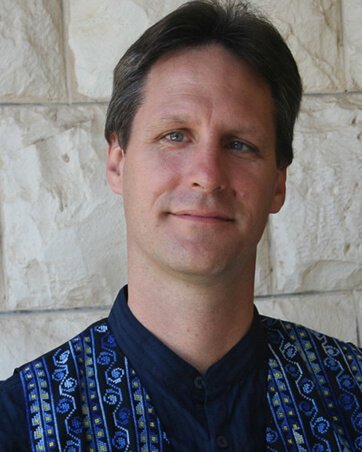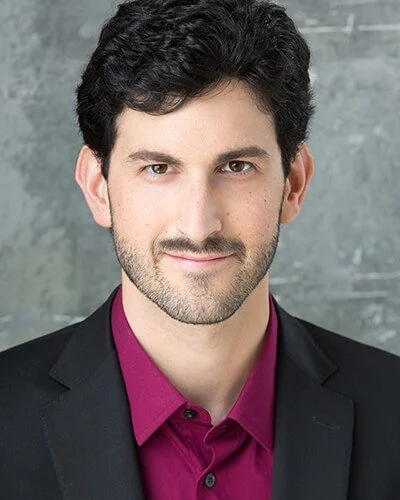Cantata Collective Program 11
November 2 and 3, 2019
Johann Sebastian Bach (1685-1750)
Ich armer Mensch, ich Sündenknecht, BWV 55
1. Aria: Ich armer Mensch, ich Sündenknecht
2. Recit: Ich habe wider Gott gehandelt
3. Aria: Ebarme dich!
4. Recit: Ebarme dich!
5. Chorale: Bin ich gleich von dir gewichen
Jesu nahm zu sich die Zwölfe, BWV 22
1. Arioso and Chorus: Jesu nahm zu sich die Zwölfe und sprach:
2. Aria: Mein Jesu ziehe mich nach dir
3. Recit: Mein Jesu, ziehe mich, so werd ich laufen
4. Aria: Mein alles in allem, mein ewiges Gut
5. Chorale: Ertöt uns durch dein Güte
Morgan Balfour, soprano
Paul Flight, alto
Kyle Stegall, tenor
Ben Kazez, bass
Stephen Schultz, flauto traverso
Marc Schachman, oboe
Kati Kyme & Lisa Weiss, violin
Anthony Martin, viola
William Skeen, cello
Kristin Zoernig, bass
Edward Murray, organ
Guest Artists
Morgan Balfour
Australian-born, American-based soprano Morgan Balfour is the most recent winner of the Handel Aria Competition. Described as being “blessed with a name, a voice and a stage presence destined to go far” by Adelaide Now, Morgan is quickly garnering attention in both the United States and her native country.
Equally at home on operatic and recital stages, Morgan has appeared with organizations such as Pinchgut Opera, Sydney Philharmonia, American Bach Soloists, Canberra Symphony Orchestra, and the Queensland Symphony Orchestra. She has also been featured at several music festivals including the Brisbane Baroque Festival, Coriole Music Festival, and Port Fairy Spring Festival.
For the 2019/20 season, Morgan joins the Lyric Opera of Kansas City as a Resident Artist where she will perform and cover roles in Die Entführung aus dem Serail, La Boheme, and The Shining. She will also appear with California Bach Society and Australian Brandenburg Orchestra, and perform a solo recital at the 2020 London Handel Festival. Alongside her career as a soloist, Morgan was engaged as an AGMA chorister with the San Francisco Symphony for their 2018/2019 season and also performed with Cappella SF.
Morgan graduated in 2018 with a Master of Music from the San Francisco Conservatory of Music. She also holds a Bachelor of Music from the Queensland Conservatorium of Music and is an alumna of the Melba Opera Trust, Lisa Gasteen National Opera School, and Hawaii Performing Arts Festival.
Paul Flight
Dr. Paul Flight — a noted choral conductor, teacher, and singer — is in his thirteenth season (2018-19) with the California Bach Society. A former member of such distinguished ensembles as the Waverly Consort, Theatre of Voices, Pomerium Musices, and the New York Collegium, he brings a wealth of expertise to CBS. Critics have praised Dr. Flight's conducting acumen, stating: "Flight has made of the choral group a professional ensemble capable of every expressive nuance and glorious ensemble sound." In addition, he is the artistic director of Schola Cantorum San Francisco, a professional chamber choir, and the founding director of Berkeley-based Chora Nova.
A renowned countertenor, Dr. Flight has performed works by John Adams, Leonard Bernstein, and Unsuk Chin with the Los Angeles Philharmonic, the Cleveland Orchestra, the Atlanta Symphony Orchestra, the BBC Scottish Symphony, the Berkeley Symphony, the Cincinnati May Festival and the Norwegian State Opera. In 2003 he sang the title role in Philip Glass's Akhnaten for Oakland Opera Theater. He made his debut at the Kennedy Center in 2008, singing the first countertenor role in Adams's El Niño, and in August, 2010 he made his debut at the Edinburgh International Festival singing the third countertenor role.
Kyle Stegall
Kyle Stegall’s performances around the world have been met with accolade for his “blemish-free production” (Sydney Morning Herald), “lovely tone and ardent expression” (NY Times), as well as his “lively and empathetic delivery” (San Francisco Classical Voice). Mr. Stegall’s performances are characterized by an unfailing attention to style and detail, and a penetrating directness of communication.
Mr. Stegall’s successful solo debuts in Japan, Australia, Vienna, Italy, Singapore, and Canada as well as on major stages across America have been in collaboration with many of the world’s most celebrated artistic directors including Manfred Honeck, Joseph Flummerfelt, William Christie, Stephen Stubbs, and Nicholas McGegan, among others.
Heard frequently as evangelist and tenor soloist in the passions and cantatas of J.S. Bach, Mr. Stegall made his Lincoln Center debut as the evangelist in the St. John Passion under the direction of Masaaki Suzuki. In demand as a symphonic soloist, Mr. Stegall’s seasons often include the oratorios of Handel and Haydn, the great masses of Mozart and Beethoven, and works from the Bel Canto and 20th century concert canon.
A dedicated proponent of the song recital, Mr. Stegall personally curates recitals each season which reveal the vast colors and emotional range the collected repertoire has to offer. Recent recitals have included the complete sacred works for tenor and piano by Britten (presented by the Yale Center for British Art), and Lieder with fortepianist Eric Zivian at the Valley of the Moon Music Festival.
This season’s highlights include his return to the Philadelphia Chamber Music Society, singing the title role in Rameau’s Hippolyte et Aricie under the direction of Stephen Stubbs, a solo recital at the Green Music Center in Sonoma, and Bach Evangelists with a number of prominent baroque orchestras.
Ben Kazez
Baritone Ben Kazez initially studied computer science before embarking on a career in music, eventually becoming a Britten–Pears Young Artist and finishing postgraduate studies at London’s Guildhall School of Music and Drama in summer 2018.
In his 2018–19 season, Ben’s solo appearances include Bach cantatas at Palau de la Musica, L’Auditori, and CaixaForum Barcelona and one-voice-per-part performances of Bach St Matthew Passion (Christus and arias), Monteverdi Vespers under Bishop David Stancliffe at Ely Cathedral, and Bach cantata 86 ‘Wahrlich, wahrlich, ich sage euch’ at Amsterdam’s Oude Lutherse Kerk. Ben will also join the Monteverdi Choir for a fully staged production of Berlioz Benvenuto Cellini under Sir John Eliot Gardiner at Opéra Royal (Versailles) and BBC Proms (Royal Albert Hall).
Upcoming performances in 2019–20 include requiems of Mozart and Jomelli at Amsterdam Concertgebouw in Ghislieri Orchestra and Chorus, Bononcini and Handel with Ghislieri at the closing concert of the 40th Anniversary Festival d’Ambronay (France), Bach cantata solos in California, a baroque recital in Germany, and Bach St Matthew Passion at Westerkerk, Amsterdam.
Bach Cantata Translations
BWV 55 - "Ich armer Mensch, ich Sündenknecht"
| Cantata for the Twenty-second Sunday after Trinity | |
| 1. Arie T Ich armer Mensch, ich Sündenknecht, Ich geh vor Gottes Angesichte Mit Furcht und Zittern zum Gerichte. Er ist gerecht, ich ungerecht. Ich armer Mensch, ich Sündenknecht! |
1. Aria T I pitiful man, I slave of sin, I go before the face of God with fear and trembling for judgment. He is righteous, I am unjust. I pitiful man, I slave of sin! |
| 2. Rezitativ T Ich habe wider Gott gehandelt Und bin demselben Pfad, Den er mir vorgeschrieben hat, Nicht nachgewandelt. Wohin? soll ich der Morgenröte Flügel Zu meiner Flucht erkiesen, Die mich zum letzten Meere wiesen, So wird mich doch die Hand des Allerhöchsten finden Und mir die Sündenrute binden. Ach ja! Wenn gleich die Höll ein Bette Vor mich und meine Sünden hätte, So wäre doch der Grimm des Höchsten da. Die Erde schützt mich nicht, Sie droht mich Scheusal zu verschlingen; Und will ich mich zum Himmel schwingen, Da wohnet Gott, der mir das Urteil spricht. |
2. Recitative T I have acted against God and that same path that He has prescribed for me, I have not travelled. Where? Shall I choose the wings of the dawn for my flight, that will take me to the utmost ocean, yet the hand of the Almighty shall find me and bind the switch of sin for me. Alas yes! Even if Hell contained a bed for me and my sins, yet the wrath of the Highest would be there. The earth does not shield me, it threatens to devour me with monsters; and if I wished to soar to heaven, God lives there, who speaks the judgment against me. |
| 3. Arie T Erbarme dich! Laß die Tränen dich erweichen, Laß sie dir zu Herzen reichen; Laß um Jesu Christi willen Deinen Zorn des Eifers stillen! Erbarme dich! |
3. Aria T Have mercy! Let tears soften You, let them reach into Your heart; may, for the sake of Jesus Christ, the zeal of Your anger be quieted! Have mercy! |
| 4. Rezitativ T Erbarme dich! Jedoch nun Tröst ich mich, Ich will nicht für Gerichte stehen Und lieber vor dem Gnadenthron Zu meinem frommen Vater gehen. Ich halt ihm seinen Sohn, Sein Leiden, sein Erlösen für, Wie er für meine Schuld Bezahlet und genug getan, Und bitt ihn um Geduld, Hinfüro will ich's nicht mehr tun. So nimmt mich Gott zu Gnaden wieder an. |
4. Recitative T Have mercy! However now I am comforted, I will not stand before judgment and rather before the throne of grace I go to my holy Father. I hold His Son up to Him , His Passion, His Redemption, how He, for my guilt has paid and done enough, and pray Him for mercy, from henceforth I will do no more. Then God will take me into His grace again. |
| 5. Choral Bin ich gleich von dir gewichen, Stell ich mich doch wieder ein; Hat uns doch dein Sohn verglichen Durch sein Angst und Todespein. Ich verleugne nicht die Schuld, Aber deine Gnad und Huld Ist viel größer als die Sünde, Die ich stets bei mir befinde. ("Werde munter, mein Gemüte," verse 6) |
5. Chorale Although I have been separated from You, yet I return again; even so Your Son set the example for us through His anguish and mortal pain. I do not deny my guilt, but Your grace and mercy is much greater than the sin that I constantly discover in me. |
| Christoph Birkmann; "Werde munter, mein Gemüte," verse 6: Johann Rist 1642 (mov't. 5) | |
|
©Pamela Dellal
|
|
BWV 22 - "Jesus nahm zu sich die Zwölfe"
| Cantata for Estomihi | |
| 1. Arioso T B Chor Jesus nahm zu sich die Zwölfe und sprach: - Sehet, wir gehn hinauf gen Jerusalem, und es wird alles vollendet werden, das geschrieben ist von des Menschen Sohn. -Sie aber vernahmen der keines und wußten nicht, was das gesaget war. (Luke 18:31, 34) |
1. Arioso T B and Chorus Jesus gathered the twelve to Himself and spoke: - Behold, we go up to Jerusalem, and all will be fulfilled, that is written of the Son of Man. - However they understood nothing and did not know what that saying was. |
| 2. Arie A Mein Jesu, ziehe mich nach dir, Ich bin bereit, ich will von hier Und nach Jerusalem zu deinen Leiden gehn. Wohl mir, wenn ich die Wichtigkeit Von dieser Leid- und Sterbenszeit Zu meinem Troste kann durchgehends wohl verstehn! |
2. Aria A My Jesus, draw me after You, I am ready, I want to leave here and go to Jerusalem to Your passion. It is a good thing when I can understand the importance of this time of suffering and death thoroughly, as my consolation! |
| 3. Rezitativ B Mein Jesu, ziehe mich, so werd ich laufen, Denn Fleisch und Blut verstehet ganz und gar, Nebst deinen Jüngern nicht, was das gesaget war. Es sehnt sich nach der Welt und nach dem größtenHaufen; Sie wollen beiderseits, wenn du verkläret bist, Zwar eine feste Burg auf Tabors Berge bauen; Hingegen Golgatha, so voller Leiden ist, In deiner Niedrigkeit mit keinem Auge schauen. Ach! kreuzige bei mir in der verderbten Brust Zuvörderst diese Welt und die verbotne Lust, So werd ich, was du sagst, vollkommen wohl verstehen Und nach Jerusalem mit tausend Freuden gehen. |
3. Recitative B My Jesus, draw me, then I will run, for flesh and blood understands through and through although Your disciples didn't, what You have said. They yearn after the world and after the greatest portion; in addition they would, when You were transfigured, even build a tabernacle upon Tabor's mountain; In the face of Golgatha, so full of suffering, Your debasement no eye would behold. Ah! Crucify in me, in my corrupted breast first and foremost this world and forbidden pleasures, then will I completely understand what You say and go to Jerusalem with a thousand joys. |
| 4. Arie T Mein alles in allem, mein ewiges Gut, Verbeßre das Herze, verändre den Mut; Schlag alles darnieder, Was dieser Entsagung des Fleisches zuwider! Doch wenn ich nun geistlich ertötet da bin, So ziehe mich nach dir in Friede dahin! |
4. Aria T My all in all, my eternal good, improve my heart, change my outlook; strike everything down which resists this denial of the flesh! Yet when I am dead in spirit, then draw me to you in peace! |
| 5. Choral Ertöt uns durch dein Güte, Erweck uns durch dein Gnad; Den alten Menschen kränke, Daß der neu' leben mag Wohl hie auf dieser Erden, Den Sinn und all Begehren Und G'danken hab'n zu dir. ("Herr Christ, der einig Gotts Sohn," verse 5) |
5. Chorale Kill us through your goodness, wake us through your grace! Sicken the old being, so that the new may live even here on this earth, having his mind, all desires, and thoughts for You. |
| Luke 18:31, 34 (mov’t. 1); "Herr Christ, der einig Gotts Sohn," verse 5: Elisabeth Kreuzinger 1524 (mov’t. 5) | |
|
©Pamela Dellal
|
|
Texts and Translations courtesy of Pamela Dellal, Emmanuel Music




